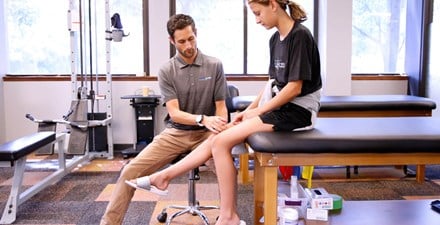Listening Time — 15:58
New staggering statistics illustrating the reach and toll of America's opioid epidemic seem to be released almost daily.
In 2012, health care providers wrote enough opioid prescriptions for every American adult to have their own bottle of pills. In 2015, roughly 1 in 3 Medicare beneficiaries were prescribed at least 1 opioid. Approximately 60% of adults prescribed opioids have leftover pills, and that 1 in 5 of them reported sharing their medication with someone else.
But adults aren't the only ones who experience pain.
In this episode of Move Forward Radio, Mary S. Swiggum, PT, PhD, PCS, discusses pediatric pain management, including when opioids might be appropriate, and when alternatives like physical therapy are preferred.
APTA's #ChoosePT campaign is raising awareness about safe alternatives to opioids for long-term pain management.
Download the podcast on iTunes or listen below:

Mary S. Swiggum, PT, PhD, PCS, is an assistant professor in the Doctor of Physical Therapy program at Wingate University, and is a Board Certified Specialist in pediatric physical therapy. She has over 30 years of clinical experience in pediatrics, and has published book chapters and research articles on pain in children.


